NSAID Medication Checker for Heart Failure Patients
Is This Medication Safe for Your Heart?
Many over-the-counter pain relievers contain NSAIDs that can worsen heart failure. Check your medications now to see if you're at risk.
Important Note: All NSAIDs (including ibuprofen, naproxen, and celecoxib) increase fluid retention risk for heart failure patients, regardless of dosage or duration. Even a single dose can trigger hospitalization.
NSAIDs can cause fluid retention, increased blood pressure, and worsen heart failure symptoms. Even short-term use can lead to hospitalization.
What to do immediately:
- Stop taking the NSAIDs immediately
- Monitor your weight daily (gain of 2+ pounds in 24 hours is a red flag)
- Check for swelling in your legs, ankles, or face
- Contact your doctor today
Safer Alternatives
Acetaminophen (Tylenol) is the safest pain relief option for heart failure patients. It doesn't affect kidney function like NSAIDs.
Important: Use no more than 3,000mg per day unless your doctor says otherwise.
Non-drug alternatives:
- Heat therapy
- Gentle stretching
- Physical therapy
- Topical creams with menthol or capsaicin
- Relaxation techniques
What to tell your family
Teach your loved ones to avoid giving you NSAIDs for pain. Many hospitalizations happen because someone "just gave them a pill" without knowing the risk.
Common NSAIDs to avoid:
- Ibuprofen (Advil, Motrin)
- Naproxen (Aleve)
- Celecoxib (Celebrex)
- Diclofenac (Voltaren)
- Flurbiprofen
- Meloxicam
- Piroxicam
- Indomethacin
Since you're not taking NSAIDs, you've avoided this significant risk factor for worsening heart failure. However, remember:
- Always check labels for hidden NSAIDs in cold/flu medications
- Monitor your weight daily
- Report any sudden swelling or shortness of breath to your doctor
For millions of people with heart failure, a simple over-the-counter painkiller like ibuprofen could be the difference between staying at home and ending up in the hospital. It’s not just a theoretical risk - it’s happening every day, often without patients even realizing it. NSAIDs - the class of drugs that includes ibuprofen, naproxen, and celecoxib - don’t just relieve pain. In people with heart failure, they trigger a chain reaction that causes the body to hold onto fluid, making the heart work harder and pushing it closer to failure.
How NSAIDs Cause Fluid Retention
NSAIDs work by blocking enzymes called COX-1 and COX-2, which are involved in inflammation and pain. But those same enzymes also help the kidneys regulate fluid balance. When NSAIDs shut them down, the kidneys start holding onto sodium and water instead of flushing it out. This isn’t just a minor side effect - it’s a direct assault on the heart’s ability to function.
Imagine your heart is already struggling to pump blood. Now, extra fluid floods your bloodstream. Your heart has to push harder. Blood pressure rises. Fluid leaks into your lungs and legs. Within days, you might notice swelling in your ankles, sudden weight gain, or trouble breathing when lying down. These aren’t random symptoms - they’re signs your heart failure is worsening, and NSAIDs are likely the trigger.
Research from 2003 by Dr. Gysèle S. Bleumink showed that NSAIDs reduce kidney blood flow by 20-30% in people with heart failure. That drop means less fluid gets filtered out. A 2022 study in the European Heart Journal tracked over 100,000 people with type 2 diabetes and found that even a few days of ibuprofen or naproxen use raised the risk of heart failure hospitalization by up to 88%. The highest risk? The first week.
All NSAIDs Carry the Same Risk - Even the "Safer" Ones
For years, people thought COX-2 inhibitors like celecoxib (Celebrex) were safer for the heart. That idea was wrong. While they may cause less stomach irritation, they affect the kidneys just like traditional NSAIDs. The same 2003 review by Bleumink warned that COX-2 inhibitors "have similar effects on renal function" and carry the same heart failure risks. The New Zealand Medsafe agency confirmed this in 2019, stating bluntly that "all NSAIDs can exacerbate heart failure."
Even naproxen, sometimes thought to be the "least risky" NSAID, still increases fluid retention. Some studies show a slightly lower heart attack risk compared to other NSAIDs, but when it comes to heart failure, there’s no safe choice. A 2024 review of global heart failure registry data found that patients exposed to any NSAID within 30 days of hospital discharge had a 28% higher chance of being readmitted - regardless of the drug type.
Who’s Most at Risk?
The danger isn’t equal for everyone. Older adults, especially those over 65, are the most vulnerable. Their kidneys don’t work as well naturally, and they’re more likely to be on multiple medications that interact with NSAIDs. People with type 2 diabetes are also at higher risk - their kidneys are already under stress, and NSAIDs push them further.
Even if you’ve had heart failure for years and feel stable, NSAIDs can still destabilize you. A 2018 American Heart Association survey found that 37% of heart failure patients had taken NSAIDs without realizing the danger. Of those, 62% ended up with a sudden worsening of symptoms - often requiring emergency care.
Real stories back this up. One Reddit user shared that after taking two 400mg doses of ibuprofen for a headache, they gained 10 pounds of fluid in 72 hours. Another patient described being rushed to the hospital after taking naproxen for back pain - a pain they thought was "just aging." These aren’t rare cases. They’re predictable outcomes.
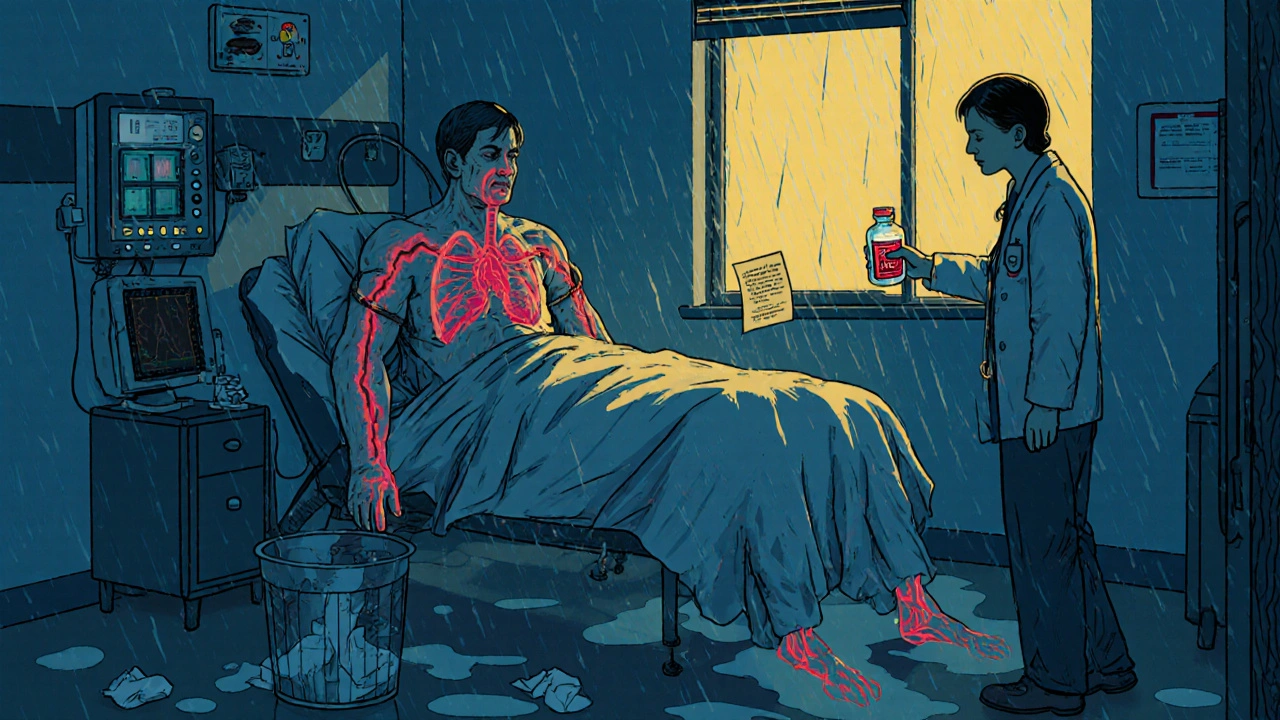
What Happens When You Take NSAIDs With Heart Failure Medications?
Heart failure patients are often on diuretics (water pills), ACE inhibitors, or beta-blockers. NSAIDs interfere with all of them. They blunt the effect of diuretics, making them less effective at removing fluid. They reduce the blood pressure-lowering power of ACE inhibitors and ARBs. This isn’t just a minor interaction - it’s a dangerous combo that leaves the heart exposed.
Doctors have known this for decades. The European Society of Cardiology’s 2021 guidelines give NSAIDs a Class III recommendation - meaning they’re proven to cause harm and should be avoided entirely. The American Heart Association updated its 2023 statement to call NSAIDs "absolutely contraindicated" in all stages of heart failure.
What Can You Take Instead?
Acetaminophen (Tylenol) is the go-to alternative. It doesn’t affect kidney function the same way NSAIDs do. It won’t reduce inflammation, but for most types of pain - headaches, joint aches, muscle soreness - it’s enough. It’s not perfect (high doses can harm the liver), but for heart failure patients, it’s the safest option available.
Non-drug approaches matter too. Heat packs, gentle stretching, physical therapy, and even mindfulness techniques can help manage chronic pain without drugs. For arthritis or joint pain, topical creams with menthol or capsaicin can provide relief without systemic effects.
Some patients ask about aspirin. Low-dose aspirin (81mg) is different - it’s used for heart protection and doesn’t carry the same fluid retention risk as higher-dose NSAIDs. But even then, it should only be taken under a doctor’s guidance, especially if you’re on blood thinners or have kidney issues.
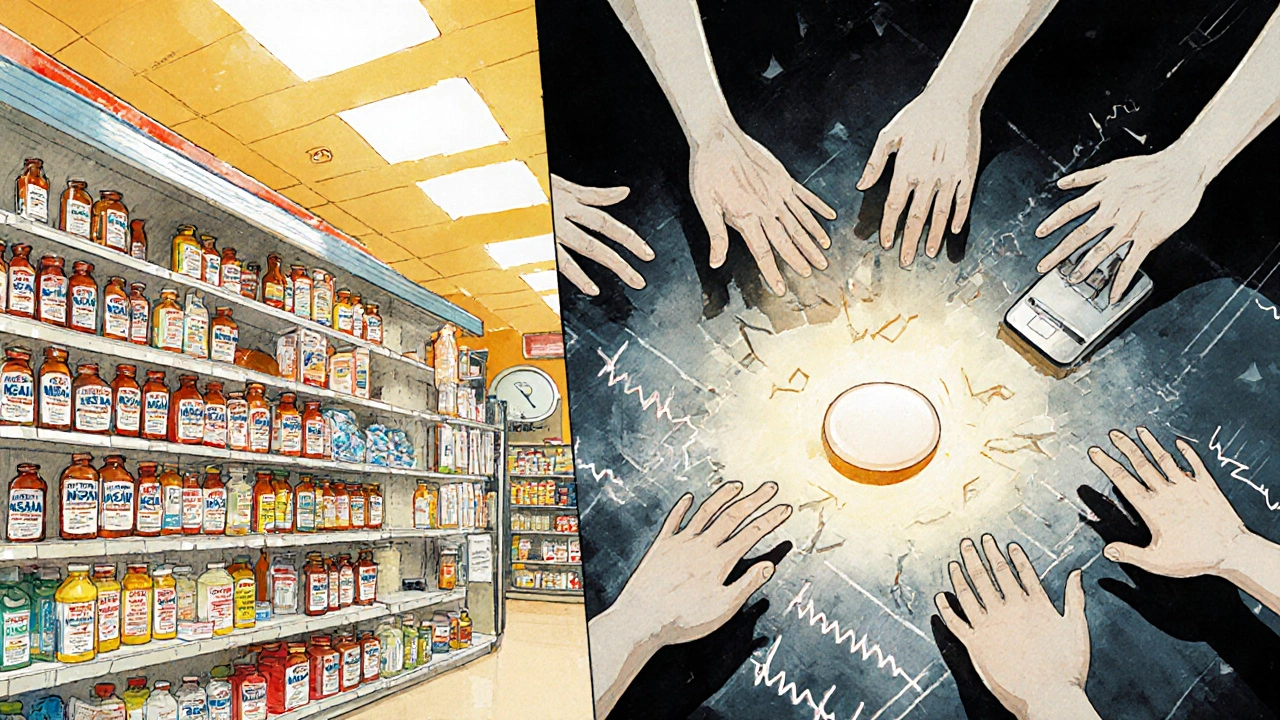
Why Do People Keep Taking NSAIDs?
It’s not because they’re reckless. It’s because the danger isn’t obvious. Over-the-counter means "safe," right? But that’s a myth. The FDA required all NSAID labels to include warnings about heart failure risk in 2020. The European Medicines Agency did the same in 2013. Yet, a 2021 survey found that less than half of primary care doctors routinely ask heart failure patients if they’re taking NSAIDs.
Patients aren’t warned. Pharmacists don’t always flag it. Family members might hand them a bottle of ibuprofen "to help with the pain." The global NSAID market is worth over $11 billion, with two-thirds sold without a prescription. That’s a lot of bottles in medicine cabinets - and a lot of hidden risks.
What Should You Do?
If you have heart failure:
- Avoid all NSAIDs. That includes ibuprofen, naproxen, diclofenac, celecoxib, meloxicam, and others - even in low doses or short courses.
- Check every medication. Many cold, flu, and headache remedies contain NSAIDs. Read labels carefully.
- Use acetaminophen instead. Stick to the lowest effective dose - no more than 3,000mg per day unless your doctor says otherwise.
- Track your weight daily. A sudden gain of 2 pounds or more in a day could mean fluid buildup. Call your doctor.
- Teach your family. Spouses, kids, caregivers - they need to know which meds to avoid. Many hospitalizations happen because someone "just gave them a pill."
- Ask about alternatives. If pain is persistent, talk to your doctor about physical therapy, nerve blocks, or other non-drug options.
There’s no such thing as a "safe" NSAID for heart failure. Even a single dose can tip the scales. The evidence is clear, consistent, and overwhelming. The goal isn’t to live without pain - it’s to live without risking your heart.
Can I take ibuprofen if I have heart failure?
No. Ibuprofen and other NSAIDs increase fluid retention, raise blood pressure, and reduce the effectiveness of heart failure medications. Even short-term use can lead to hospitalization. Acetaminophen is the safer pain relief option.
Is naproxen safer than ibuprofen for heart failure?
No. While some studies suggest naproxen may carry a slightly lower risk of heart attack compared to other NSAIDs, it still causes fluid retention and worsens heart failure. No NSAID is safe for people with heart failure, regardless of the type.
Can NSAIDs cause heart failure in someone who doesn’t have it?
Yes, especially in older adults or those with high blood pressure, kidney disease, or diabetes. NSAIDs can trigger heart failure in people who didn’t previously have it, by increasing fluid overload and raising blood pressure. This is why guidelines now warn against NSAID use in people with cardiovascular risk factors.
What about aspirin? Is it safe?
Low-dose aspirin (81mg) used for heart protection is generally considered safe for heart failure patients, as it doesn’t significantly affect kidney fluid handling like other NSAIDs. But it should only be taken under medical supervision, especially if you’re on other blood thinners or have kidney issues.
How quickly can NSAIDs cause fluid retention?
Symptoms can appear within 24 to 72 hours. Weight gain, swelling in the legs, and shortness of breath are common early signs. One study showed hospitalization risk peaked within the first week of NSAID use.
Are topical NSAIDs safer than pills?
Topical NSAIDs (gels, creams) are absorbed in much smaller amounts and are generally safer than oral versions. But they’re not risk-free - especially if used over large areas, on broken skin, or for long periods. For heart failure patients, acetaminophen or non-drug options are still preferred.
What should I do if I accidentally took an NSAID?
If you’ve taken one dose and feel fine, monitor your weight and symptoms closely over the next few days. If you gain more than 2 pounds in a day, notice swelling, or feel more short of breath, contact your doctor immediately. Don’t wait for symptoms to worsen.
Why don’t more doctors warn patients about this?
Many doctors assume patients know NSAIDs are risky, or they don’t ask about over-the-counter meds during visits. A 2021 survey found only 43% of primary care doctors routinely screen heart failure patients for NSAID use. Patient education is still inconsistent, which is why it’s up to you to know the risks and speak up.
Final Thought: Pain Isn’t Worth the Risk
Living with chronic pain is hard. But the cost of reaching for the nearest painkiller - a hospital stay, a longer recovery, or worse - is far greater. The science is clear: NSAIDs and heart failure don’t mix. There’s no exception, no safe dose, no "just this once."
Choosing acetaminophen, using heat therapy, or asking your doctor for a better pain plan isn’t giving up - it’s protecting your heart. Every pill you avoid is one less burden on your body. Your heart is already working hard. Don’t make it work harder for no reason.
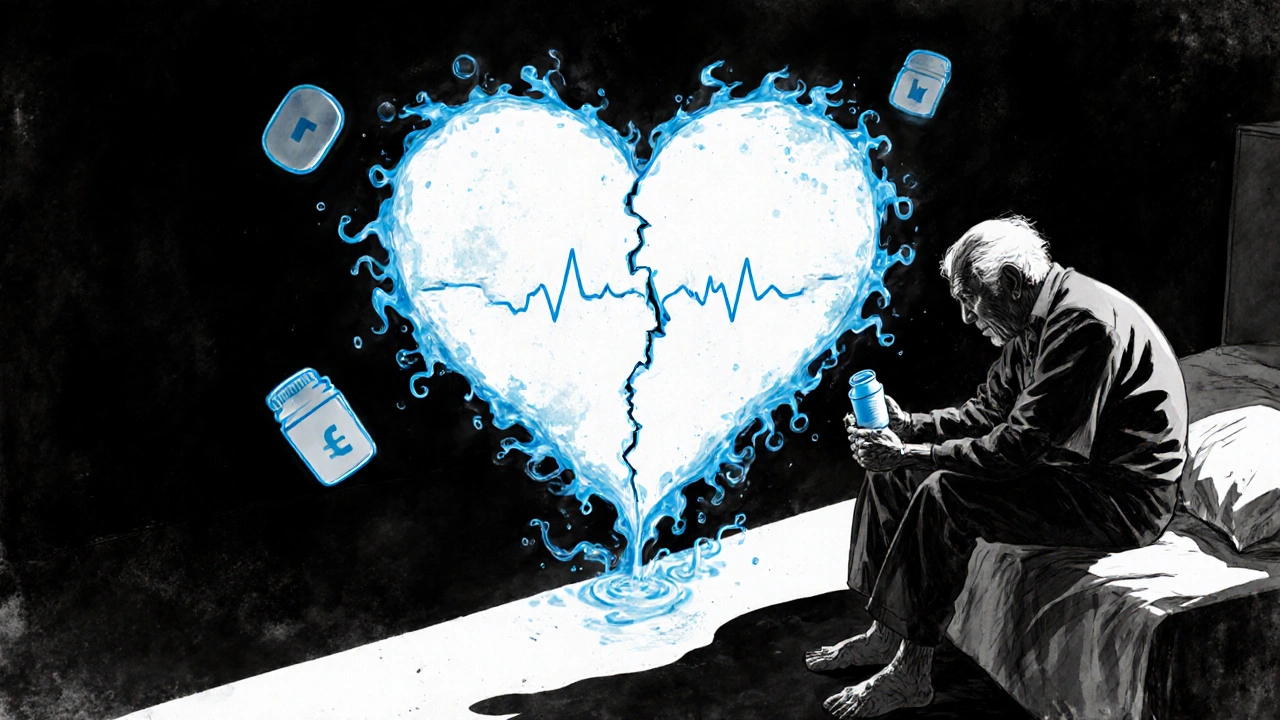


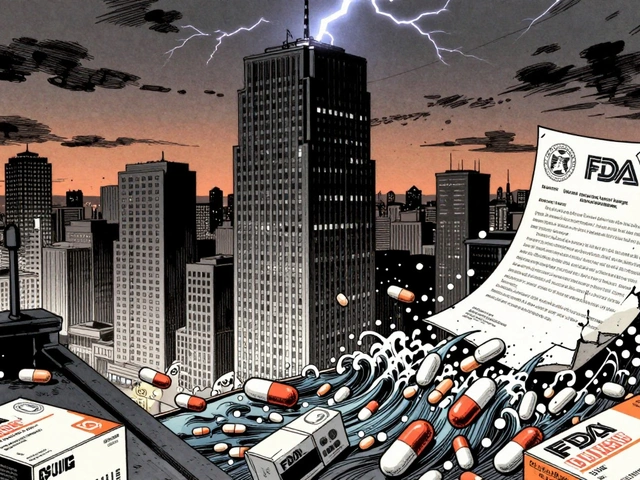

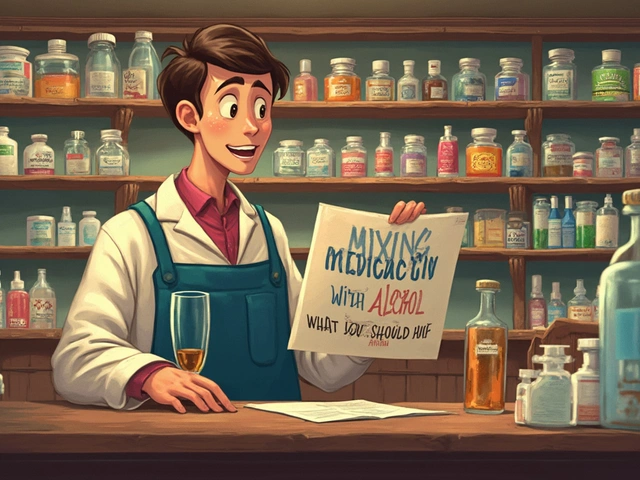
Holly Powell
18 November 2025 - 05:08 AM
Let’s be precise here: NSAIDs inhibit COX-mediated prostaglandin synthesis, which downregulates renal afferent arteriolar vasodilation, thereby reducing glomerular filtration rate in volume-depleted states-like heart failure. This isn’t anecdotal pharmacology; it’s hemodynamic destabilization via renal autoregulatory disruption. The 2022 EHJ cohort study didn’t just show correlation-it quantified the risk gradient with hazard ratios exceeding 1.88 in the first 7 days. This is Class I evidence, not a suggestion.
And yet, patients still self-medicate because OTC = harmless. That’s not ignorance-it’s systemic failure of risk communication. The FDA’s 2020 label update was a Band-Aid on a hemorrhage.
Acetaminophen isn’t ideal-it’s hepatotoxic in excess-but it’s the only non-COX-inhibiting analgesic with a reasonable safety profile here. Topical NSAIDs? Still systemic absorption >5%. Not safe. Just less dangerous. The distinction matters.
Cardiologists have known this since the 90s. Why are we still having this conversation in 2025?
Emanuel Jalba
19 November 2025 - 00:18 AM
THIS IS WHY WE CAN’T HAVE NICE THINGS 😭
I took ibuprofen for my knee and thought I was being responsible-turns out I was basically pouring salt into my dad’s failing heart. He’s 72, on diuretics, and I gave him a pill like it was candy. I feel like trash. 🤕💔
Everyone-READ THE LABELS. I didn’t even know ibuprofen was in those ‘headache relief’ packs. I’m telling my whole family. No more OTC magic pills. Acetaminophen only. And if you’re not sure? ASK. Don’t guess. Your heart isn’t a gamble.
Heidi R
20 November 2025 - 12:24 PM
It’s not just NSAIDs. It’s the entire medical ecosystem that lets people die from OTC drugs.
Doctors don’t ask. Pharmacists don’t warn. Family members hand out pills like candy.
And patients? They think ‘natural’ means safe. Ibuprofen is a synthetic NSAID. It’s not herbal. It’s not gentle. It’s a renal toxin in vulnerable patients.
You’re not being paranoid. You’re being informed.
Bailey Sheppard
20 November 2025 - 22:06 PM
I appreciate how thorough this is. I’ve got a friend with stage 3 HF who’s been on acetaminophen for years and swears by it. She also does yoga and uses a heating pad-no meds needed for most aches. It’s not glamorous, but it works.
Maybe the real story here isn’t just the drug risk-it’s how we’ve outsourced pain management to pills instead of learning sustainable, non-pharmacological ways to cope. We’ve forgotten how to listen to our bodies.
Thanks for the clarity. This needs to be shared more.
Shilpi Tiwari
22 November 2025 - 09:01 AM
Interesting. In India, NSAIDs are sold over the counter without any prescription, and many elderly patients with hypertension or diabetes take them routinely for back pain. We don’t have the same level of patient education here. The 2024 registry data you cited-was it global or Western-only? Would the risk be higher in populations with higher baseline renal stress? I’m curious about the epidemiological variance.
Also, have any studies looked at the impact of intermittent dosing vs. chronic use? I wonder if a single dose once a month carries the same risk as daily use.
Christine Eslinger
22 November 2025 - 15:55 PM
There’s a quiet tragedy here: people aren’t choosing NSAIDs because they’re reckless. They’re choosing them because they’re in pain and no one gave them a better option.
Acetaminophen doesn’t touch inflammation. So if you have arthritis, it’s like asking someone with a broken leg to walk on crutches made of tissue paper.
But here’s the thing: the system failed them first. No one offered physical therapy. No one connected them with a pain specialist. No one said, ‘Let’s try a topical gel or a nerve block.’
We blame the patient for taking the pill-but we never fixed the lack of alternatives. That’s the real failure.
It’s not just about avoiding NSAIDs. It’s about building a world where pain doesn’t have to be a life-or-death decision.
Denny Sucipto
24 November 2025 - 05:41 AM
My grandma used to say, ‘If it hurts, take a little something.’ She didn’t know any better. I remember her taking ibuprofen for her knees, then getting swollen ankles and being rushed to the ER. She cried afterward, saying she didn’t mean to hurt herself.
That’s the real problem. It’s not about being dumb. It’s about being left in the dark.
I made a little cheat sheet for my family: ‘No ibuprofen, no naproxen, no celebrex. Tylenol only. Watch your weight. Call if you puff up.’ We taped it to the fridge.
Simple. No jargon. Just survival.
If you’ve got heart failure, your meds list is your lifeline. Treat it like a sacred text.
Hal Nicholas
26 November 2025 - 02:21 AM
Everyone’s acting like this is new news. It’s not. This has been known since the 80s. The FDA didn’t ‘add’ a warning-they just finally stopped ignoring the data.
And now we’re shocked? People are dying because we treat medicine like a grocery store aisle. ‘Oh, I’ll just grab this for my headache.’
It’s not about the drug. It’s about the culture of ignorance. You wouldn’t take insulin if you didn’t have diabetes. Why do you think NSAIDs are harmless?
Stop pretending this is a surprise. It’s a predictable, preventable massacre.
Louie Amour
27 November 2025 - 20:08 PM
You people are pathetic. This isn’t a ‘discussion.’ It’s a public health emergency disguised as a blog post.
Doctors are lazy. Pharmacies are profit-driven. Patients are dumb. And you all just sit here ‘appreciating’ the data like it’s a TED Talk.
Let me spell it out: NSAIDs KILL HEART FAILURE PATIENTS. PERIOD. No ‘but.’ No ‘maybe.’ No ‘some studies.’
Stop being polite. Start being dangerous. If you know someone with HF and they’re taking ibuprofen, take their pills. Throw them out. Call their doctor. Do something.
Or keep being a passive observer while someone you love dies because you were too ‘nice’ to intervene.
Kristina Williams
29 November 2025 - 00:33 AM
Wait-so NSAIDs are bad, but aspirin is okay? Hmm. But what if the FDA and pharma are hiding something? I read on a forum that NSAIDs are part of a big pharma plot to keep people dependent on meds. They don’t want you using heat packs because they make less money.
And why is acetaminophen the ‘safe’ option? Didn’t Tylenol get recalled for liver damage? Maybe it’s worse.
Also, I heard the kidneys don’t even work the way they say. Maybe the whole fluid retention thing is a lie to sell more diuretics.
Just saying… question everything.
Sarah Frey
29 November 2025 - 00:39 AM
Thank you for this meticulously referenced and clinically grounded exposition. The integration of guideline recommendations from both ESC and AHA, coupled with epidemiological data from peer-reviewed journals, provides a compelling and unambiguous framework for clinical decision-making.
It is imperative that healthcare providers institutionalize NSAID avoidance as a standard of care in heart failure management, not as an afterthought. Patient education materials should be standardized, culturally adapted, and reinforced at every clinical encounter.
This is not merely a pharmacological issue-it is a systems-level failure in preventive cardiology.
Katelyn Sykes
29 November 2025 - 19:50 PM
Just got back from my cardiologist and he told me the same thing
no NSAIDs ever
even if I think I need it
even if I’m in pain
even if it’s just one pill
So I got a heating pad and some Epsom salt baths
and I’ve been doing yoga videos on YouTube
it’s not magic but it’s mine
and I’m still here
and that’s what counts
no pills no hospital no scare
just me and my heart
we got this
Gabe Solack
30 November 2025 - 10:20 AM
My dad had HF and took naproxen for his back for 3 weeks. Didn’t even think twice. Then he gained 15 lbs in 5 days and ended up in ICU.
He’s fine now, but he’ll never take another NSAID. We made a list of all the meds he’s on and taped it to his pill organizer.
Also-topical NSAIDs? I asked my pharmacist. She said ‘technically safer, but still not recommended.’ So we skipped it.
Now he uses Voltaren gel only if his doctor says yes-and even then, it’s once a week max.
Knowledge is power. But action is protection.
Yash Nair
1 December 2025 - 05:57 AM
India has 200 million people with heart issues and no one even knows what NSAID means
we call it painkiller
everyone takes it
even kids
doctors dont care
pharmacies sell it like candy
you think this post matters here
no one reads it
no one cares
they just want the pain to go away
and if they die next week
so what
at least they felt better today
Holly Powell
1 December 2025 - 13:33 PM
Re: @4135 - Your point is valid, but not hopeless. The WHO’s Essential Medicines List now includes acetaminophen as first-line for pain in low-resource settings. Community health workers in rural India are being trained to identify fluid retention and counsel against NSAIDs. Change is slow, but it’s happening.
It’s not about blaming the patient. It’s about building systems that make the safe choice the easy choice. Translation. Visual aids. Local language education. Mobile alerts. These are scalable solutions.
Don’t give up on the world. Fix it.